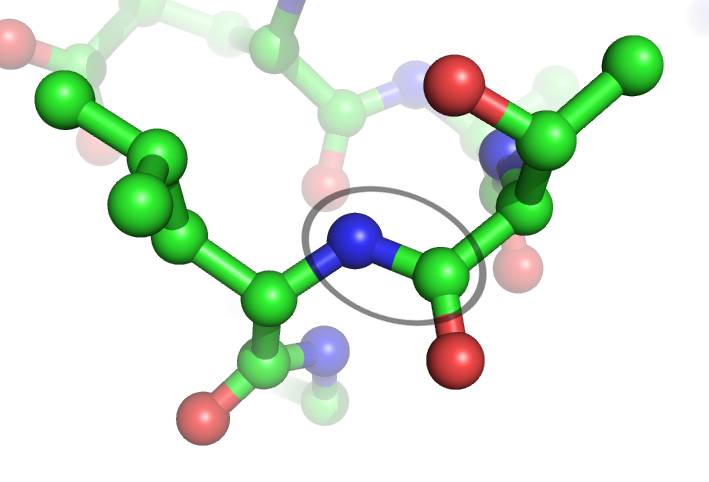peptide bond

A peptide bond (amide bond) is a covalent chemical bond formed between two molecules when the carboxyl group of one molecule reacts with the amino group of the other molecule, causing the release of a molecule of water (H2O), hence the process is a dehydration synthesis reaction (also known as a condensation reaction), and usually occurs between amino acids.
The resulting C(O)NH bond is called a peptide bond, and the resulting molecule is an amide. The four-atom functional group -C(=O)NH- is called a peptide link.
Polypeptides and proteins are chains of amino acids held together by peptide bonds, as is the backbone of PNA.























